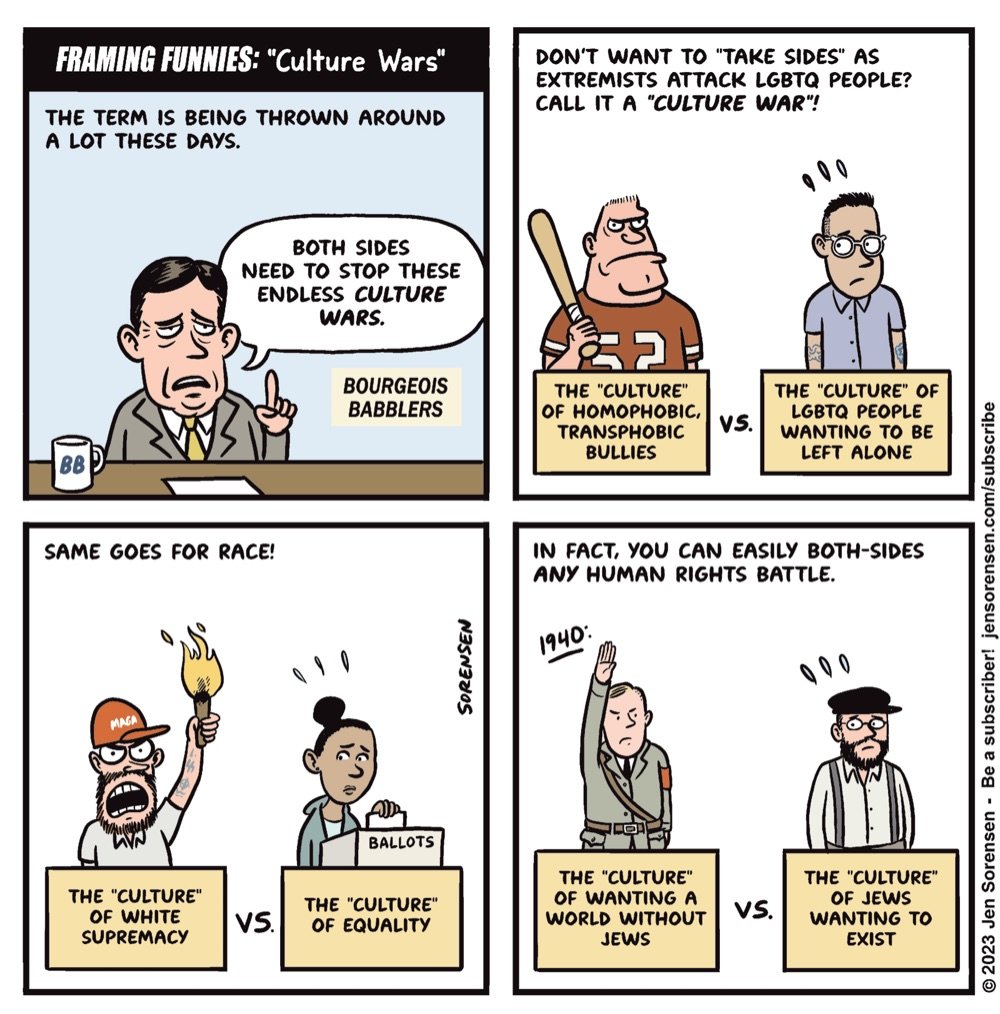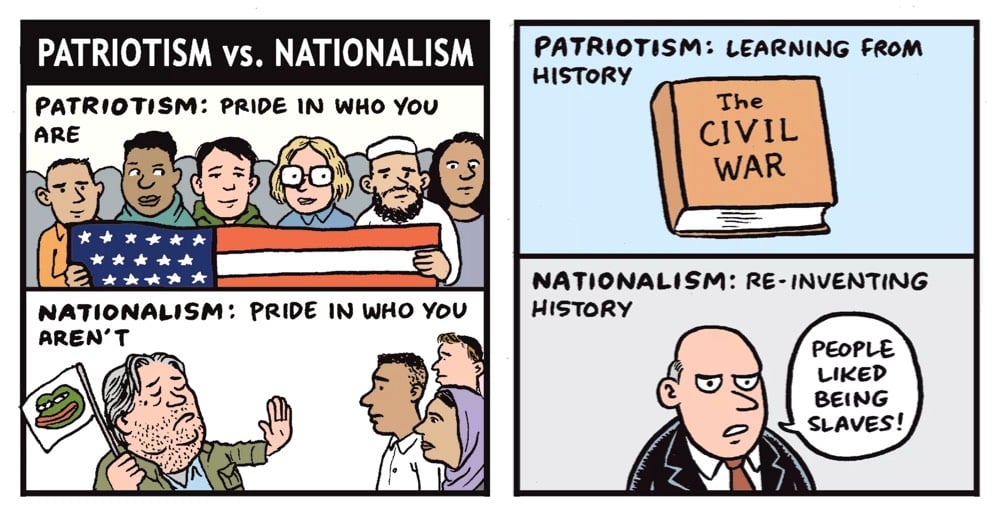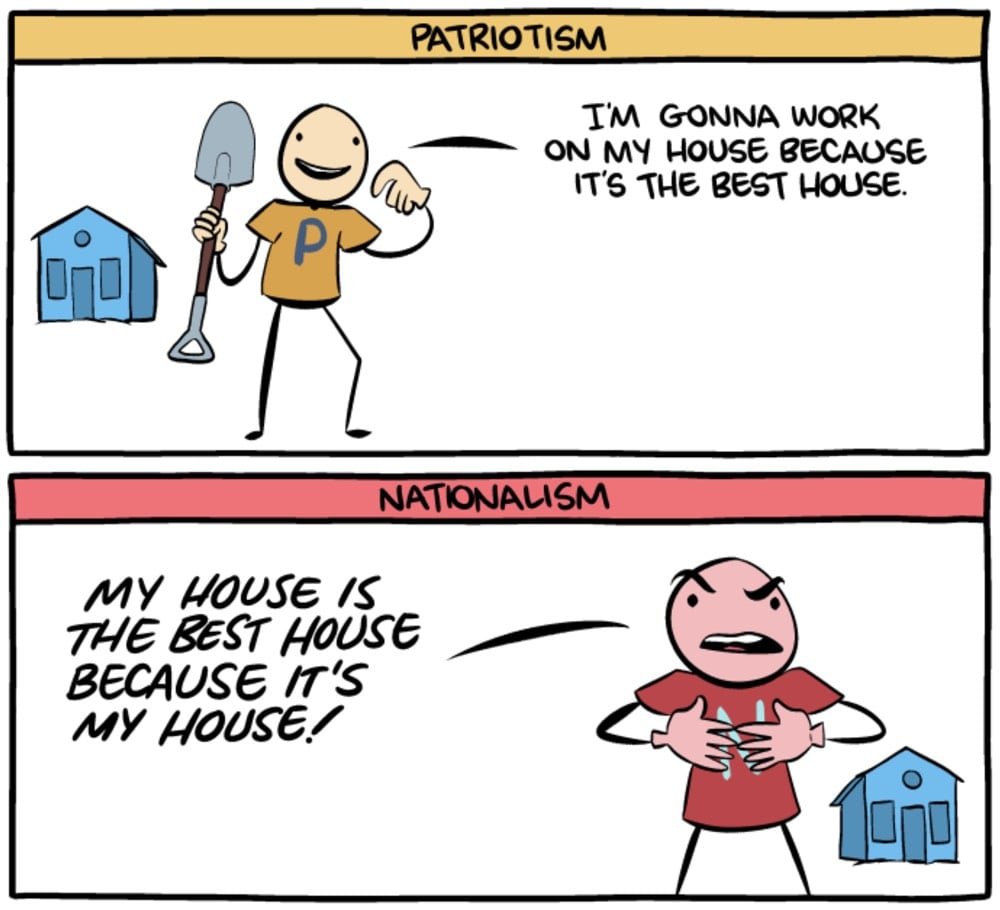Political cartoonist Jen Sorensen recently published this cartoon at The Nib about the harmful mischaracterization of human rights battles as mere “culture wars”.

Here’s what she wrote about it:
The term “culture wars” is used by many well-meaning people, including many progressive writers and activists I admire. It’s a convenient way to refer to a number of issues. But in this current political moment, I think it’s a highly misleading euphemism. What we are experiencing in America right now is an asymmetrical attack on basic freedoms — a fascist movement that thrives on targeting certain groups, erasing history, and spreading dangerous falsehoods through a vast media apparatus. To call this a “culture war” is to legitimize the contemporary GOP and its extremist counterparts as a coherent and authentic “culture” worthy of respect. This is a misuse of the concept of culture, creating a false equivalence between marginalized groups and those who would harm or eliminate them in a quest for ever more power.
Yeah, spot on. You can follow Sorensen’s work on Mastodon, The Nib, Daily Kos, and Patreon.

At a time when fascism & authoritarianism are creeping into the global politics of the developed world, it’s useful for us to reacquaint ourselves with the difference between nationalism and patriotism. In the wake of World War II, George Orwell wrote an essay called Notes on Nationalism (available in book form here). The first two paragraphs define nationalism and contrast it with patriotism:
Somewhere or other Byron makes use of the French word longeur, and remarks in passing that though in England we happen not to have the word, we have the thing in considerable profusion. In the same way, there is a habit of mind which is now so widespread that it affects our thinking on nearly every subject, but which has not yet been given a name. As the nearest existing equivalent I have chosen the word ‘nationalism’, but it will be seen in a moment that I am not using it in quite the ordinary sense, if only because the emotion I am speaking about does not always attach itself to what is called a nation — that is, a single race or a geographical area. It can attach itself to a church or a class, or it may work in a merely negative sense, against something or other and without the need for any positive object of loyalty.
By ‘nationalism’ I mean first of all the habit of assuming that human beings can be classified like insects and that whole blocks of millions or tens of millions of people can be confidently labelled ‘good’ or ‘bad’. But secondly — and this is much more important — I mean the habit of identifying oneself with a single nation or other unit, placing it beyond good and evil and recognizing no other duty than that of advancing its interests. Nationalism is not to be confused with patriotism. Both words are normally used in so vague a way that any definition is liable to be challenged, but one must draw a distinction between them, since two different and even opposing ideas are involved. By ‘patriotism’ I mean devotion to a particular place and a particular way of life, which one believes to be the best in the world but has no wish to force on other people. Patriotism is of its nature defensive, both militarily and culturally. Nationalism, on the other hand, is inseparable from the desire for power. The abiding purpose of every nationalist is to secure more power and more prestige, not for himself but for the nation or other unit in which he has chosen to sink his own individuality.
The whole essay is worth a read; you’ll find yourself nodding in recognition at many points. More succinctly, Jen Sorensen’s Patriotism vs. Nationalism comic (excerpted above) and Zach Weinersmith’s An Important Distinction comic (below) cover some of the same ground.

See also a more progressive definition of freedom.








Stay Connected